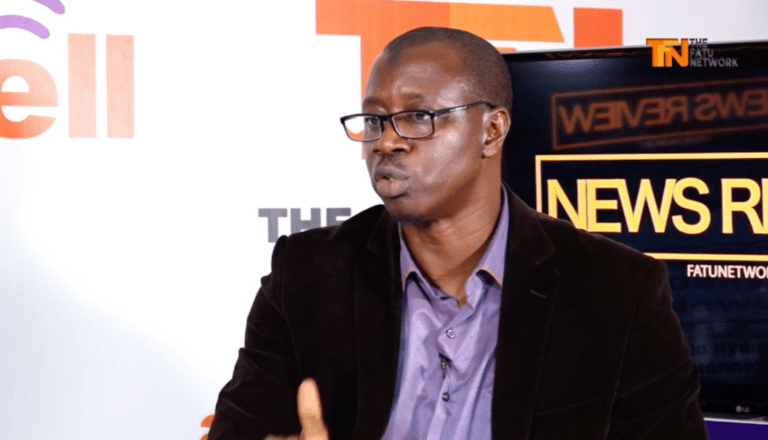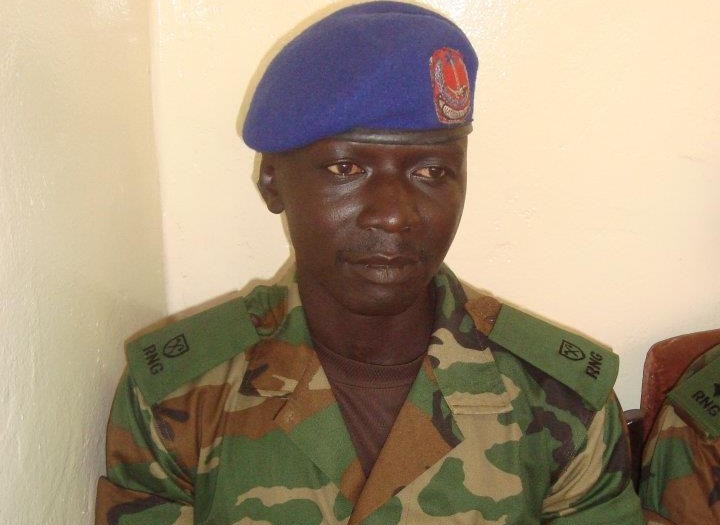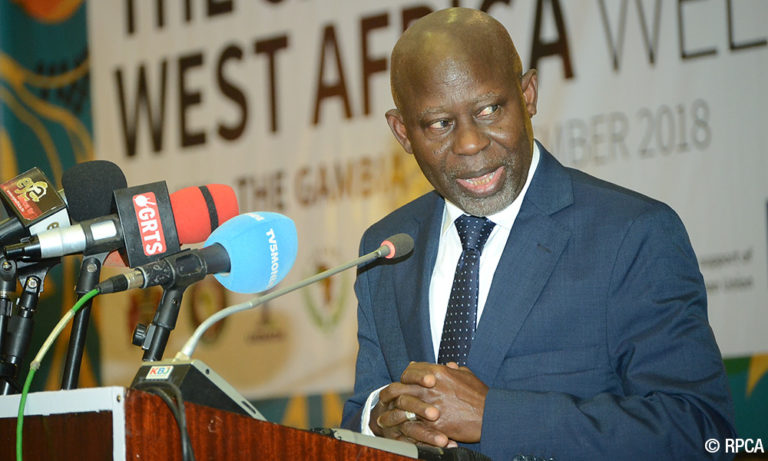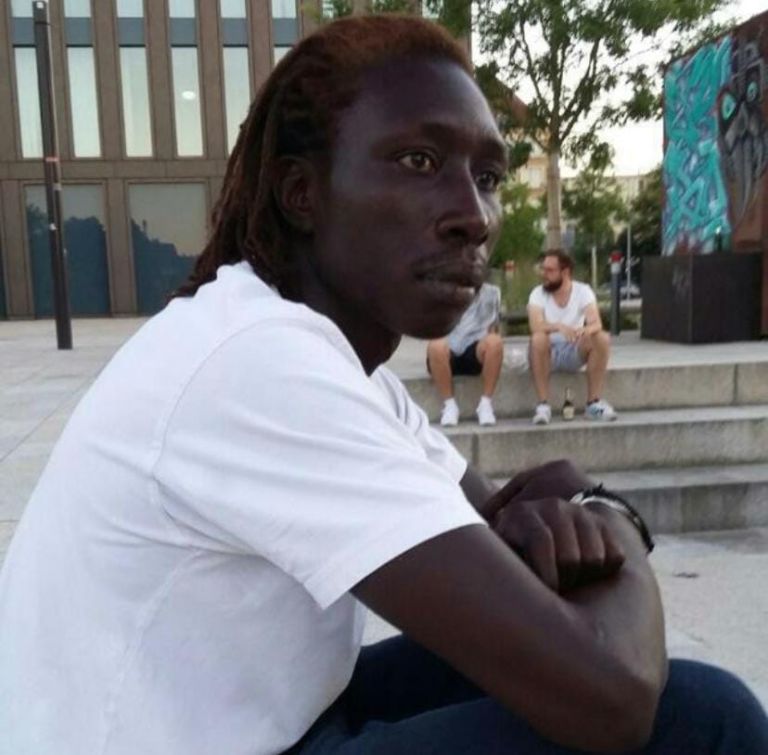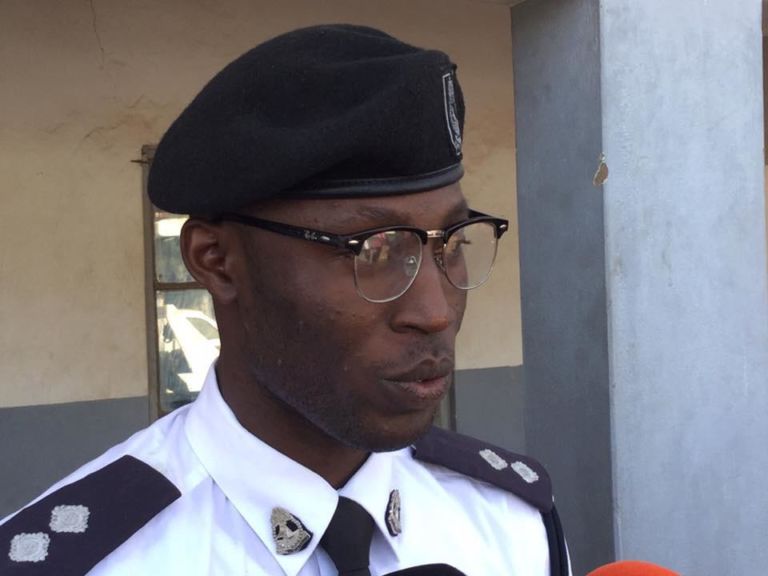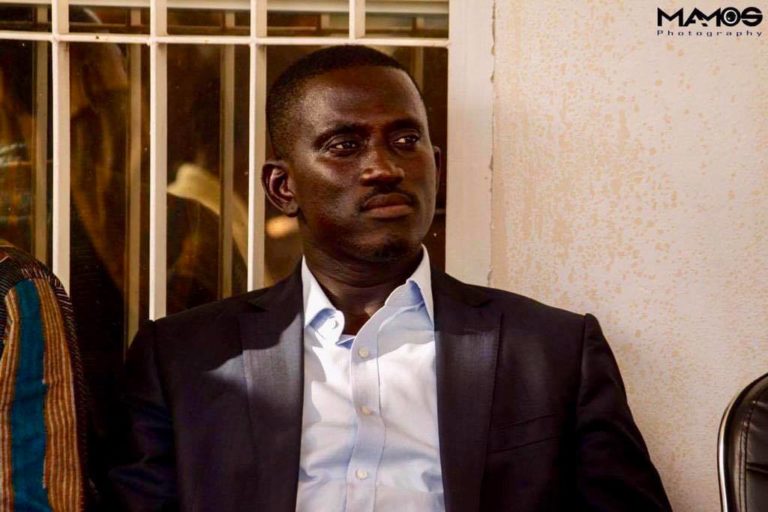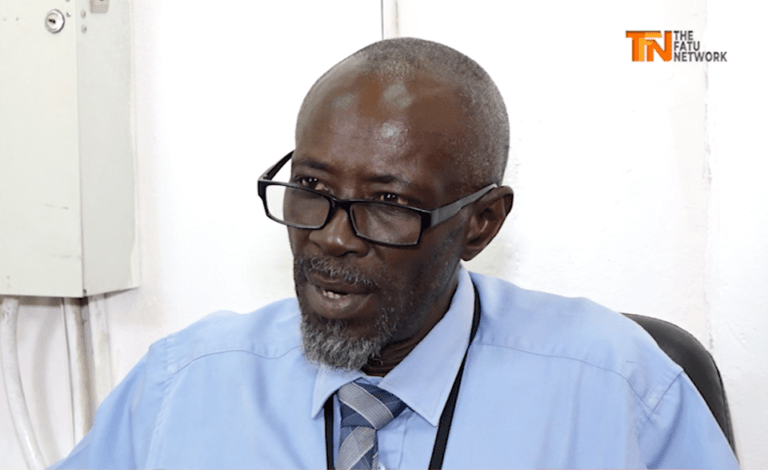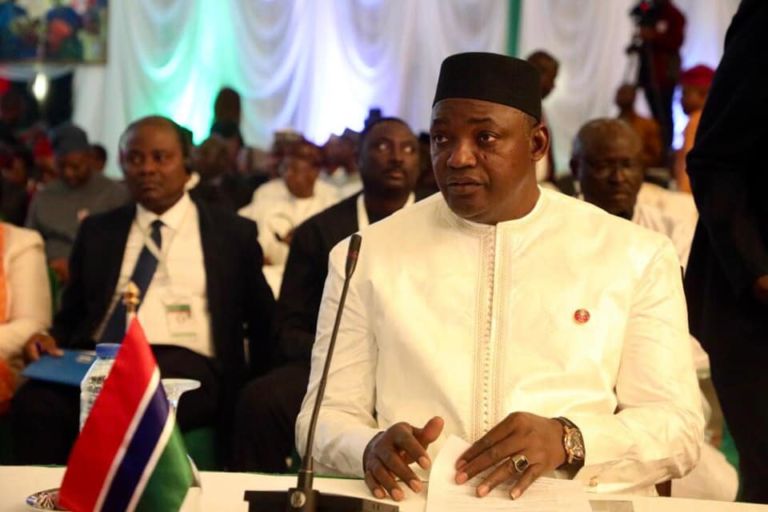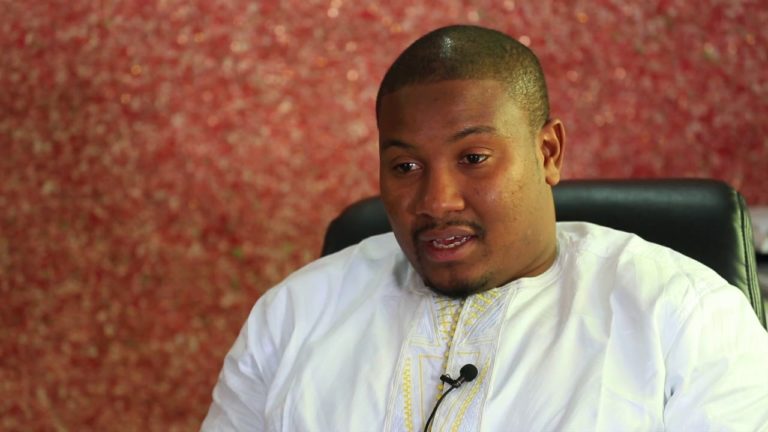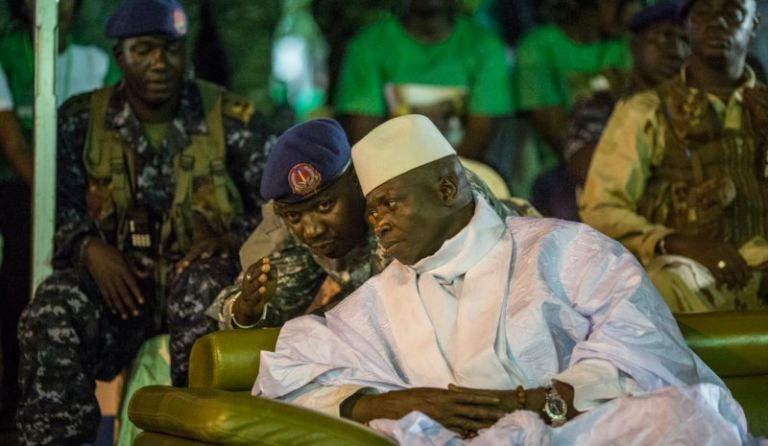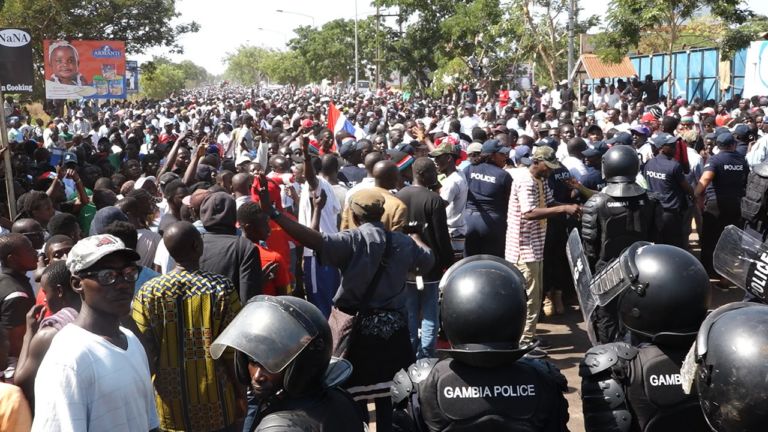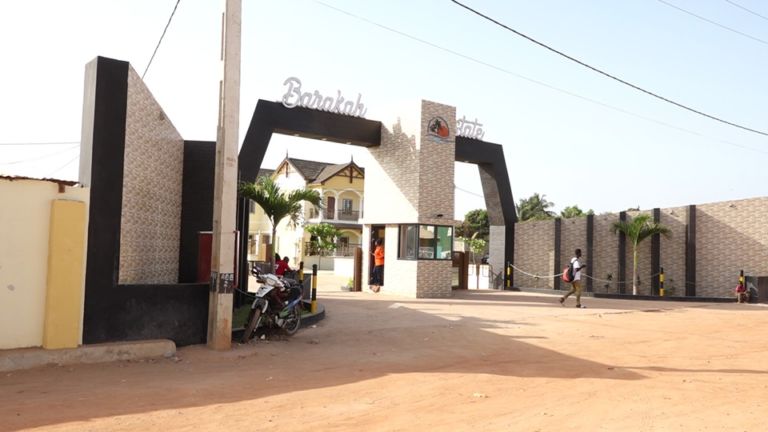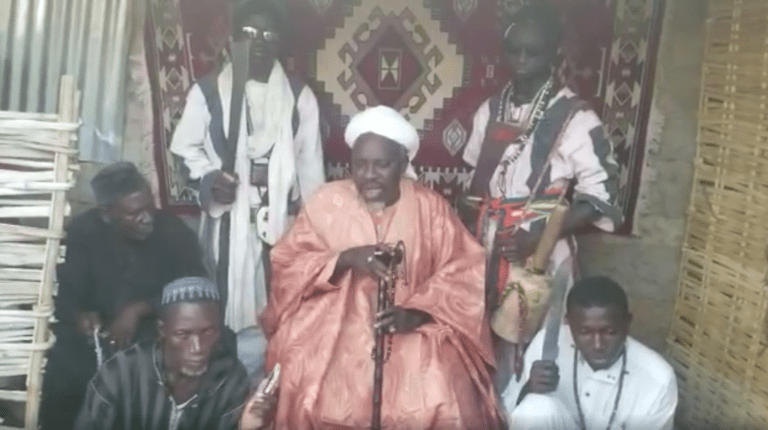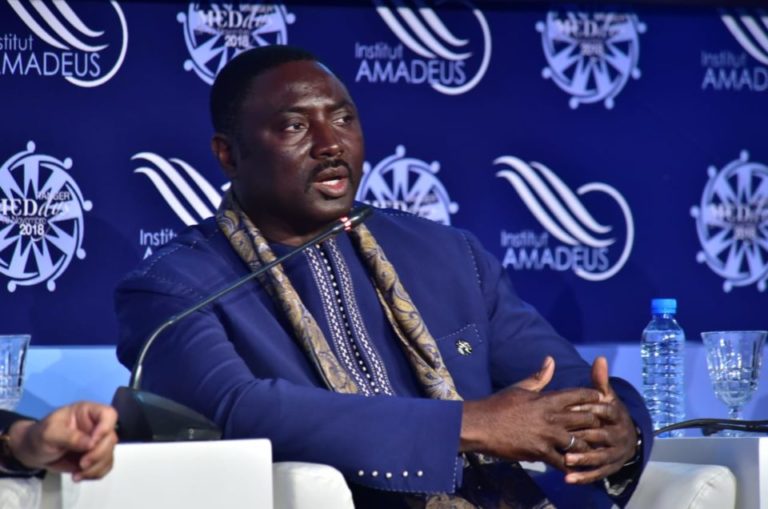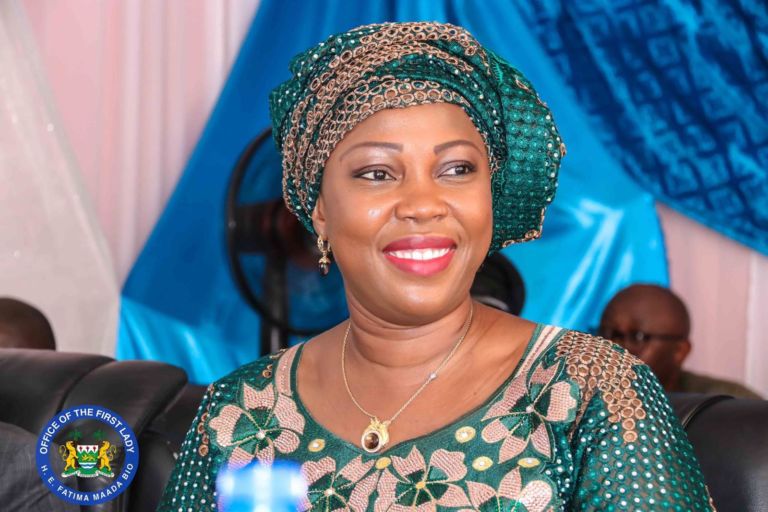Former presidential affairs minister Momodou Sabally has called on President Adama Barrow to cut short his URR trip and return to Banjul.
President Barrow has since last week been unveiling projects and holding meetings in URR, and the Mr Sabally is warning that crowds that the president is amassing could make The Gambia more vulnerable to Coronavirus.
In an open letter, Sabally wrote: “I salute you, Your Excellency, with utmost respect and wish you success in all your endeavours that would further the wellbeing of the people you lead, my people, our people.
“Mr. President, I have been mulling over starting this series on the above title (On the realities of our current situation: letter to my president (Part 1)) but paused for caution. The initial draft of the introductory part was authored months ago but I refrained from publishing it for fear that the excitement of the moments and prevailing political temperaments could make me to utter statements that would be unfair, or disrespectful, to you.
“I know that many people (perhaps including you) have opined that “Sabally talks/writes too much.” But actually I am very careful of my utterances and in terms of my writings and speeches I am actually operating below 50 percent of my capacity. Yet even if the critics still hold those views, then shall I not quote the words of Foday Musa Suso in the traditional song “Jooka” in response to them: “moolu ko ndaa siyaa ta. Nko daa la siyaa nyaa m-maa long. Moe lu bay la moe kumoe la; nteh nga n-na walaa taa, m-baa karanna.” (The people say that I am too takertive. But I don’t know how I can talk too much. For when the people were talking, I was busy with my slate learning.)
“Anyway, let me go straight to the purpose of this letter (part 1) for the introductory part will be published next week and henceforth, inshaa Allah, I shall be writing weekly letters to you on matters relevant to the progress of our country, The Gambia.
“Mr. President, of late I have received calls from various quarters to speak about our country’s position regarding the menacing Coronavirus. I had demurred because there are simply too many issues to highlight and health is not one of my areas of expertise.
“The first request came from an Asian man who saw me at a supermarket. He was worried that The Gambia was not making any moves to protect our citizens from the marauding Coronavirus and knowing that I have a voice, he advised that I start talking about this issue. I told him about a news story on QTV regarding a Gambian returning from China was allowed free entry into the country without any tests being run on him. This patriotic young man insisted that the health authorities screen him before he entered the country. I thought that was enough of an alert but the Asian guy insisted that I should speak.
“A brother of mine, Nfansu Marong who lives in Europe repeated a similar request and after ignoring it for a couple of days, I was inspired to write these notes after my ishaa prayers las night. My silence weighed too heavily on my heart because I fear that if disaster strikes (God forbid) I would be culpable for keeping quiet when Allah has blessed me with a voice.
“Mr. President, it looks like our country is at greater risk with the arrival of this danger across the border. I know that our health system is not robust enough to protect us; neither can we handle this menace if it enters our country. Whatever assurances your experts are giving you, I can assure you that we need to do way more than we are doing right now to protect our children, if not ourselves.
“Therefore I appeal to you to cut short your current provincial trip where you are amassing crowds, and thereby further making the country more vulnerable to this virus; please come back to Banjul and call up all the expertise you can summon both within government and outside of the public service.
“There are dozens of experts in the field of health who would be glad to be of service in these trying times. If you should need their names, I am ready to make some recommendation and none of them would turn down a request from me to serve the country without pay, inshaa Allah. We have retired international civil servants and former local public servants who could be of help in addition to the staff that are already engaged with their regular duties in the health sector.
“Please, let us take this matter a little bit more seriously because our state of preparedness is certainly not adequate. The facilities put up at the airport are not fit for purpose and the situation at the borders is too bad for even the health officials deployed to work there regarding this emergency.
“And one more thing Mr. President, I know all about resource constraints within the government but there are willing private individuals and foundations that would be ready to help at any time. Meanwhile, the least we can do as a country is to embark on massive sensitisation campaigns using both public and private media. Shall we start now, Mr. President?
“I hope this letter would be received in good faith as I write purely out of concern as a citizen of this country without regard to political orientation.
“Thank you, Your Excellency, for your kind attention and may Allah bless you and the country.”


